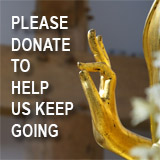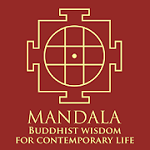
|
|
|
Home Asia Pacific South East Asia Myanmar Myanmar Protest News Seeking Refugeby Withaya Huanok and William Laurie, SHAN, Nov 16, 2007
Bangkok, Thailand -- “Are you here for sightseeing?” inquired the saffron-robed monk in a fluent blend of central and northern Thai, as he shuffled into the village temple.
“When the Burmese army came, some of us tried to stay behind to look after our rice, our chickens, our pigs,” one resident recounted to me on my first visit several years ago. “However, they took them anyways, arrested the young men, beat them. Some of them were killed and we eventually had to flee with nothing.” The idyllic setting belies the circumstances which gave rise to this community. The morning mists had just lifted, unveiling verdant hills which stretched as far as the eye could see, many with orderly rows of fruit and tea trees, the bedrock of the local economy. Where the orderly rows ended was where Burma began. The temple in which we sat was a simple structure, the wind rustling through the thatched roof and woven strips of bamboo that formed the walls. Intermittent holes in the thatch cast sunbeams onto the plastic reed mats covering the cement floor, while a dozen gilded Buddha images gazed down placidly from a small altar. The monk was inquisitive, asking where we were from, what we did. “Would you like some tea?” he offered, gesturing at a jug and several mugs, neatly arranged on a plastic tray. “We grow this here, it was just picked. They grow it just behind this hill, fresh green tea,” he explained, his right arm languidly gesturing off to the side. Soon another monk appeared, a thin, older man in his early 40s, breathing heavily, his face covered with a sheen of perspiration. “I just walked here over the hills,” he explained, a sheepish grin on his face. After another round of re-introductions, our conversation soon shifted to the recent and ongoing crackdowns in Burma. “I am from the other side,” admitted the younger monk. After a brief pause, he elaborated, “from Shan State. My home was in Mongkeung, near Kunhing. I came to Thailand ten years ago. For us, Thailand[1] really is the land of the free,” he said with a twinkle in his eye. Central Shan State, particularly Kunhing, suffered the brunt of the SPDC’s mass relocation program, initiated in 1996, a policy accompanied by widespread human rights abuses against civilians. A 2003 report by the Shan Human Rights Foundation (SHRF) entitled Charting the Exodus from Shan State, found that of the 664 extrajudicial killings in 1997 reported to the SHRF, 314 occurred in Kunhing alone, and the highest number of refugees fleeing Shan State also came from this township.[2] “Back home, when I was growing up, all we ever knew of was fear, intimidation, killing. We were always on the run from the Burmese soldiers. Whenever we heard they were coming, we would move. Our whole village was forced to move; it was destroyed by the Burmese army. When Burmese soldiers got to villages, all they’d find were old people and women. The young men were gone because we knew that if we were found, they would suspect us of helping the Shan soldiers. I was 19 when we finally fled to Thailand; we came here because everyone else was also fleeing for Thailand.” The older monk, now somber, reached into a nearby tray and picked up a piece of paper, holding it up for us. It was a photocopy of a picture of a young monk, his name, Ven. Ain Daga, printed under the picture. “He was my friend. We were once at the same temple near Kunhing. We used to go everywhere together; he was a very good teacher, a gifted speaker. He went all over, teaching about Buddhism, often to the villages in the jungles, very rural areas. In 1996, Khun Sa surrendered and the Burmese army came to our town. They were brutal because one of the first places Yord Serk came to after he left [the Mongtai Army] and refused to surrender was to Kunhing. The Burmese arrested and tortured anyone they suspected of helping him.” The monk pointed at the picture, adding, “because he frequently traveled to rural areas, outside the city, they suspected him. At midnight, they came to his temple. At first, they were friendly, drinking tea and chatting with him in Burmese. Then they invited him to go with them. He was taken to the nearby army base; we only know because a villager living near [the base] saw this. When they dragged him off the army truck, he had been tied so tightly that he couldn’t even walk. They dragged him into the base. Then the screams started. The neighbors also heard the sounds as they beat him, stomped on him with their heavy boots. Three days later, the villager saw them drag him out and load him into an army truck; he had been badly beaten, his face was all swollen. He was never heard from again; no one ever found the body.” He paused, the silence interrupted by the occasional clucking of chickens foraging just beyond the walls of the temple. In the distance, an occasional whine of a motorcycle attempting to negotiate the hills echoed. “In Burma, monks have to be approved before they can teach, preach to the people,” the older monk added. “When you apply, they check your background; if you have been involved in politics, they will deny you permission. If your history is ‘clean’ then it’s okay. But monks have always been active in social change in Burma. Two monks, U Ottama and U Wisara, are both national heroes for speaking out against British colonialism, calling for independence for Burma. Both were imprisoned; U Wisara went on a hunger strike for 166 days, taking only water before finally dying in prison. They ignited an independence movement, a national political movement. Now they [the SPDC] say that politics is against the vinaya [monastic code]; monks cannot get involved in politics. If they do, the government can arrest, defrock, and even murder them.” He paused momentarily, his face was now drawn as he gazed outside at the hills, towards Shan State. “Before, the monks were the only ones who could talk back to the military. Now you see that we can’t even do that.” --------------------- [2] For more information, please see Shan Human Rights Foundation, Charting the Exodus from Shan State: Patterns of Shan Refugee Flow into Northern Chiang Mai Province of Thailand 1997-2002. |
 Get your Korean Buddhist News here, brought to you by BTN-Buddhist Channel |
 |
 The Mandala app brings together Buddhist wisdom and meditation techniques with the latest insights of psychology and neuroscience to handle the challenges and complexities of modern life. The App offers a series of engaging talks and conversations with experts on a wide variety of topics, such as managing stress, dealing with adversity, developing greater resilience, cultivating empathy and compassion, creating healthy relationships, and many more. These topics are explored to help find greater peace, meaning and joy in our lives. Our panel of experts include Dr, Thupten Jinpa, Daniel Goleman, Kelly McGonigal and others.FREE DOWNLOAD here |
| Point
your feed reader to this location |
| Submit an Article |
| Write to the Editor |

